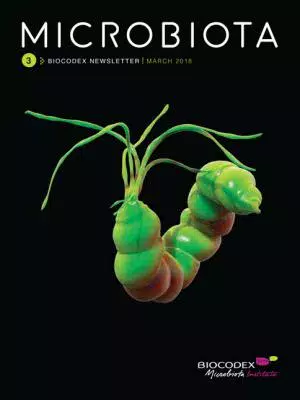
Microbiota 3 - March 2018
Dear Readers,
Since the discovery of antibiotics in the first half of the 20th century, their efficacy in managing infectious diseases has been widely evidenced. Their actions on pathogenic bacteria have very often rendered them indispensable and sometimes vital. However, since their antibacterial efficacy is not specific to pathogenic bacteria, their use also leads to a serious imbalance in the gut microbiota, resulting in dysbiosis. Antibiotic-associated diarrhoea, a short-term consequence of post-antibiotic dysbiosis, is well known. Here, Prof. Yvan Vandenplas (Brussels, Belgium) refers to recent work highlighting the medium- and long-term impact of antibiotic intake, especially when administered very early in life.
Faecal transplantation has many potential applications. Prof. Harry Sokol (Paris, France) investigates the results obtained by M. Nieuwdorp and colleagues in patients with metabolic syndrome: faecal transplantation from slim donors improves insulin sensitivity in obese patients with metabolic syndrome. This may also prove to contribute towards advancing our knowledge in pathophysiology. Prof. Emmanuel Mas (Toulouse, France) presents his latest work showing that transferring stools from infants with colic to mice induces visceral hypersensitivity. These results point towards a painful abdominal mechanism and the direct or indirect involvement of the gut microbiota in the pathophysiology of infantile colic.
The gut microbiota was the focus of the 30th congress of the European Helicobacter & Microbiota Study Group (September 7–9, Bordeaux, France) and the Asian Pacific Digestive Week (September 23–26; Hong Kong): Profs. Francis Mégraud (Bordeaux, France) and Uday C. Ghoshal (Lucknow, India) summarise the key points. Finally, in his press review, Prof. Ener C. Dinleyici (Eskisehir, Turkey) comments on the latest recommendations from the World Gastroenterology Organisation on the use of pre- and probiotics in paediatrics and stresses the short- and medium-term consequences of intrapartum antibioprophylaxis in infants. Enjoy your reading.
BMI-18.01


